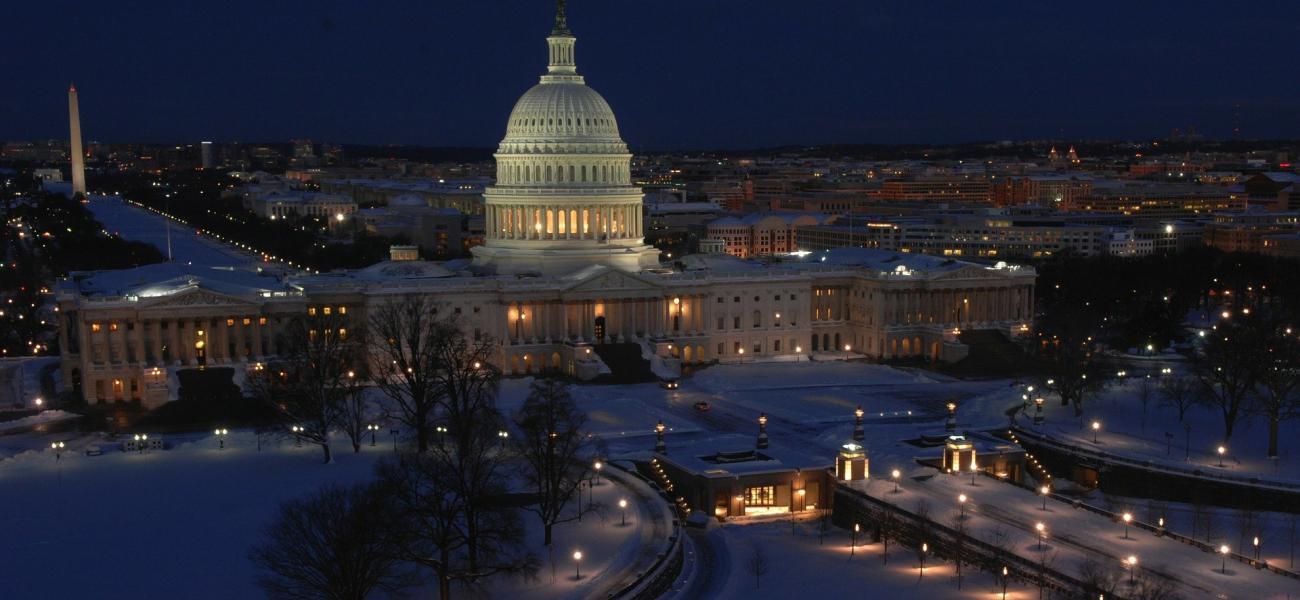
How to Reinvent Democracy Promotion
This article was originally published by The National Interest with the subheading: "The United States cannot credibly promote democracy abroad any longer, and the Biden administration must act swiftly to remedy our own deficiencies."
It's morning in America again, even if it doesn’t look like it yet. Donald Trump may have balked at accepting the results of the election, and the transfer of power promises to be more than a little messy, but make no mistake—a new day is dawning.
Joe Biden’s election represents an opportunity for America to repair itself after four miserable years of watching an utter incompetent undermine our institutions, degrade our alliances, embolden our enemies, and trash our values. As we make sense of the wreckage of the Trump presidency, an insight of Alexis de Tocqueville’s comes to mind. “The great privilege of the Americans is to be able to have repairable mistakes,” he wrote in Democracy in America.
This will be Biden’s main task. Some mistakes are not only repairable, like Trump’s missteps in U.S. democracy promotion; they represent opportunities as well. For more than four decades, the United States has sought to promote democracy and democratic practices around the world. That effort is now in need of serious reform.
Democracy is under assault in the United States. Without any evidence, Trump claims that the election was stolen from him and has vowed to fight it in court and perhaps through less legal means. With a smirk, U.S. Secretary of State Mike Pompeo told reporters that there would be a smooth transition to a second Trump administration—a sentiment and style one might expect in Russia and Venezuela, not in the United States. Even worse, Trump’s denial seems to be working with some of his supporters. 70 percent of Republicans do not believe the election was free or fair. If more than half of the country does not accept the legitimacy of the presidential election, democracy itself is in deep trouble.
The United States cannot credibly promote democracy abroad any longer, and the Biden administration must act swiftly to eliminate this obvious hypocrisy. Before we lecture Georgians and Kazakhs about the many ways in which their elections fell short, it’s time to look under the hood of our own.
First, Biden should close USAID’s democracy and governance programs and never look back. The development mammoth tries to deliver food security, economic growth, health, education, and democracy around the world, and there’s an argument that it succeeds with all but the last. USAID’s democracy programs are expensive, ineffective, often redundant, and sometimes cause more harm than good. The United States should continue to promote democracy, but in a smart and strategic way.
Second, Biden’s team should link foreign assistance and democracy promotion to a larger foreign policy strategy of democratic transformation—and be very selective about the countries and the goals. Like the Czech Republic, we must prioritize countries in transition where an influx of cash and technical assistance could make a difference. In the Eurasia region, Biden should bet the house on Belarus and Ukraine. U.S. assistance has been spread far too thin and has little to show for it.
Third, as a short-term solution, the new president should distribute democracy dollars through the grant-making model of the National Endowment for Democracy (NED). More assistance dollars make it to the field. It doesn’t prop up a flotilla of democracy specialists in Washington who prescribe programs that are inappropriate or ineffective. The NED model relies on experts with regional experience who work with local partners to devise and deliver small interventions that expose voter fraud and deliver independent voices in media environments dominated by propaganda.
Fourth, Biden should call a blue-ribbon commission together to rethink democracy promotion and international broadcasting. Both bureaucracies came of age during the Cold War and need a massive overhaul. Vested interests and for-profit contractors should be excluded from the commission, which should deliver its findings directly to the president for action.
Fifth, the Biden administration must invest in civic education in the United States. A 2016 survey found that one in four respondents was unable to name the three branches of government. All Americans should have a rudimentary understanding of the U.S. Constitution and the system of government. Trust levels remain at historic lows, and here too the Biden administration should focus its rhetoric and efforts on rebuilding trust by giving people a greater say in the democratic process; campaign finance reform would be an excellent place to start. Especially after a prolonged quarantine, Americans long to reconnect, volunteer, and speak their minds. Biden should tap into this pent-up desire by launching a massive civic education program, run by volunteers, that Dr. Jill Biden could oversee.
Even after Trump’s appalling assault on American democracy and the spirit of America, there is still every reason to be optimistic about this rough and tumble place. Tocqueville wrote, “There is no country in the world where, after all is said and done, men make as many efforts to create social well-being.” Americans’ insatiable ability to create new institutions, from churches to schools, astonished him. The next president of the United States would be wise to tap into it
Melinda Haring
Melinda Haring is the Deputy Director of the Eurasia Center at the Atlantic Council.
Photo shared under a Pixabay license.

